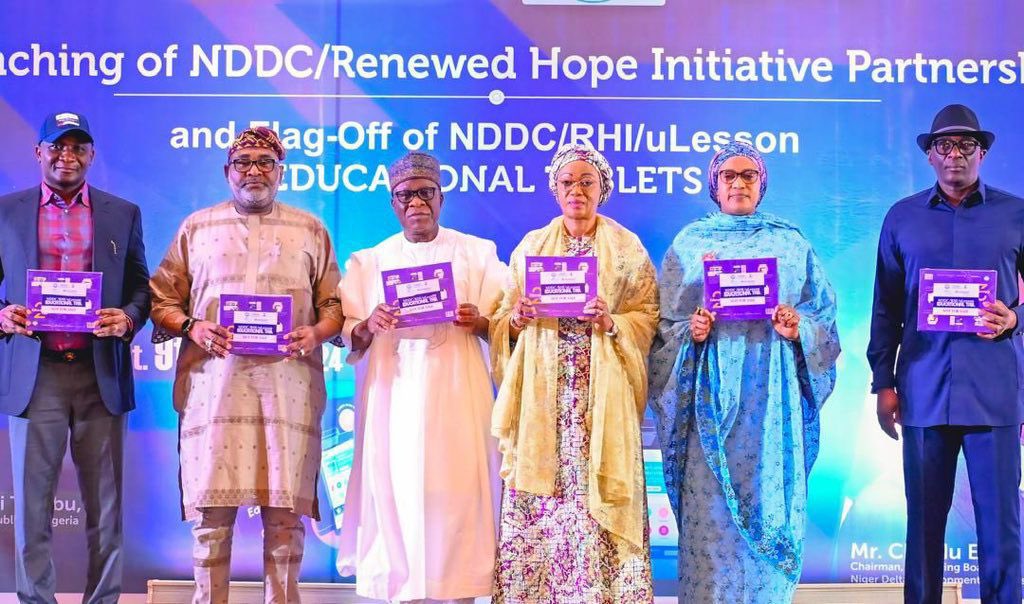
In a major step toward enhancing digital education, Nigeria’s First Lady, H.E. Senator Oluremi Tinubu, launched a large-scale distribution of 45,000 educational tablets for primary and secondary students across nine Niger Delta states. This initiative, held in Abuja, is part of the Renewed Hope Initiative (RHI) in partnership with the Niger Delta Development Commission (NDDC) and aligns with the Federal Government’s Digital Policy to build a robust digital learning ecosystem. The program also supports Sustainable Development Goal 4 (SDG4), which focuses on ensuring quality education for all.
The tablets, provided through the Nigerian ed-tech company uLesson, are tailored to the national curriculum and come preloaded with an extensive offline video library, allowing students to learn independently even without internet access. Each tablet also includes parental control features to promote a safe and supportive learning environment beyond the classroom.
Sim Shagaya, the founder of uLesson and MIVA Open University, noted the scale of the program, highlighting it as one of the largest educational technology investments by a government agency in Africa. “This initiative represents a commitment to using technology to empower students, equipping them with essential skills for today’s digital world,” Shagaya said.
Dr. Zainab Shinkafi Bagudu, a prominent advocate of education and healthcare, expressed optimism about the impact of the program, stating, “I am hopeful this initiative will expand to improve learning in the health sector and equip the next generation with the skills and confidence to thrive in an increasingly competitive world.”
As Nigeria seeks to build a stronger foundation in digital education, the program reflects a concerted effort to empower young learners in underserved regions. By providing these resources, the initiative aims to foster greater digital literacy, bridging educational gaps and preparing students for the future.
